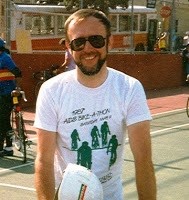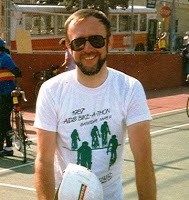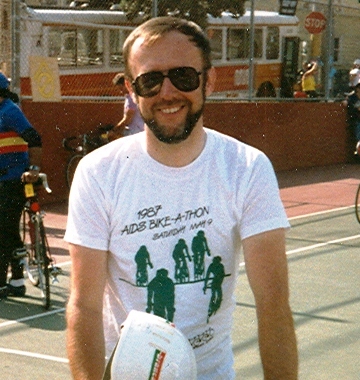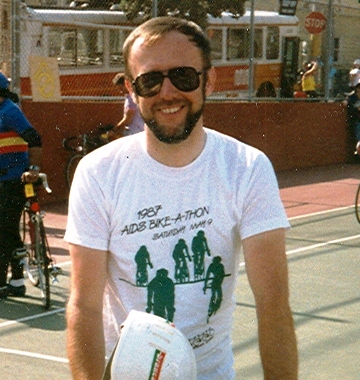the daughter of Zeus and Memory. She guides mortals in the art of contemplating
their pasts.
interaction of the present and the past. History makes the past knowable. We
are sequestered in history, prisoners of our pasts, but while we are bound to
it, history liberates us from the past.
back in the 1970s. I find them still to be true though I’ve lost all
involvement with academic life. I find them real on a personal level now.
shortly after I left academics, I saw that as entering my history. Coming out
was a getting into. Not only was I facing my own personal past and its hold on
my present, I was joining an on-going experience of countless people before me.
I was now a member of some vague thing called “gay history.” It was bigger than
me but also something I lived each small minute of each day. What went on long
before I came onto the scene suddenly was relevant to what I might do, the
dilemmas I would face, the opportunities I would have, the choices I would
make. Being gay is my entry point. It is my entry point to real life,
happiness, community and history.
said, “History is not the dead hand of the past. It’s not dead. Hell, it’s not
even past.” I loved studying history and always felt that the more I knew about
it, the more I knew about me.
a part of another kind of history. Everybody did back then even without knowing
it. We were a massive movement to expand civil rights, end poverty, explore new
ways of relating to god and man and woman, and end a war that as unjust as it
was unjustified. Because of what we, a generation, did, the world was changing.
It was not my one voice but a generation’s, a culture’s. We were history. Win
or lose, we were making history.
to be in control of it. I had a sense of impact on something much larger than
me.
its force in shaping the present and future. And I don’t doubt that knowing
history empowers me in living my daily life. But as I age, I increasingly get
the feeling that history is simply passing me by. History passes up everybody,
of course, and every generation sees its dreams and accomplishments fade like a
vaporous cloud on a summer day.
superficial to worry about. Some I just think what fools people are not to keep
what is now dismissed as old-fashioned—like speaking and writing in full
sentences. We say we value communication but seem unable to communicate with
all our devices. New ways are not always better ways—as some old fart once said.
bandwagon is going by today, I will be lost in some cobwebby existence of
nostalgia, just me and Clio, my imaginary friend. I fear a day, for example,
when all life and all connections will depend on an i-phone or something like
it. Will I be friendless because I’m not on Facebook? As I’m writing this
piece, my home phone is out of order and I feel as though I am marooned on an
ice floe in the Arctic. Totally cut off.
be global climate change but I will see it in my withering tomato plants that
just can’t cope with day after day of super-hot temperatures. That mundane
level is usually where history is lived.
2012
Cleveland, then grew up in San Francisco, and is now growing up in Denver. He
retired from work with non-profits in 2009 and now bicycles, gardens, cooks,
does yoga, writes stories, and loves to go out for coffee.









